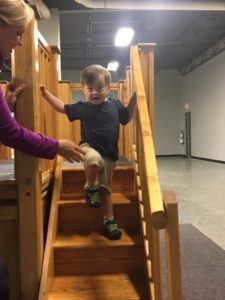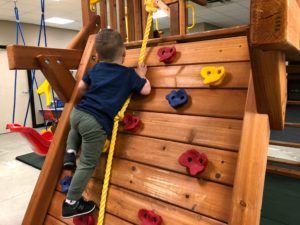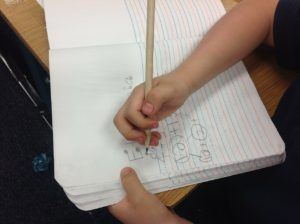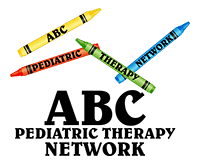Therapy- Medical Model vs. Educational Model – Which Is Best For My Child?
Medical Model
In the medical model, an occupational, physical, or speech therapist performs evaluations and treatments in a clinical setting after being referred by a doctor. These evaluations and treatments often mimic a child’s natural play environment. Therapists look at the whole child, and their ability to function in all aspects of daily life. Goals are focused toward the child’s home and community function, as opposed to their function at school. However, the interventions at school and in the clinic may go hand in hand. For instance, if a child needs to improve balance and strength in order to get to downstairs at their school, they will also need to improve balance and strength to climb up the stairs at home to get to their bedroom. 
ABC Pediatric Therapy Network (www.abcpediatrictherapy.com) has six locations throughout the Cincinnati and Dayton areas that present children with the challenges of their home and community environment. All locations have a full-size jungle gym, trampoline, and foam pit in the large gym setting. For example, the foam pit can be used in therapeutic ways to help a child to gain motor planning through building block towers, and to gain coordination, trunk strength and upper extremity strength through swinging. As treatment is completed on the equipment, children are able to gain confidence in themselves, which will carry over to the playground and school. This will allow the children to better interact with peers in the classroom and playground.
In the clinical setting, therapists interact not only with the child, but also with the child’s primary caregiver, and siblings. Family dynamics are taken into consideration when forming a treatment plan that is realistic to the child and family as a whole. Families are an active participant in therapy sessions, and help form goals that would be beneficial to the child’s function throughout the day. ABC Pediatric Therapy Network also understands the importance of peer interaction and encourages patients to interact with each other during treatment. This allows children to build social skills such as initiating conversations, turn taking, and sharing. Children will often play games together to work on social skills including conversational skills, and appropriate responses to winning and losing.

Occupational, physical, and speech therapists working in a clinical setting offer direct, individualized treatment to their patients. At ABC Pediatric Therapy Network, therapists are part of a unique multidisciplinary team. This is a major benefit to the patients because skills that are being targeted during one therapy can be enforced during the other therapies. For instance, if the speech therapist is working toward a goal of a child using three-word requests, the physical therapist can augment his or her treatment by having the child use a three-word request prior to carrying out the activity (i.e. “kick the ball”).
School-based therapy uses an educational model that focuses on academic performance, and is governed by IDEA (Individuals with Disabilities Education Act). In the educational model, children with disabilities benefit from evaluations and treatments in a setting that is in their natural environment with their peer group. This model of pediatric therapy also focuses on a multidisciplinary approach to the therapy assessment, planning, and intervention. A multidisciplinary team includes the parents, teacher, special education teacher, and therapists. The team must be in agreement in order to implement an Individualized Education Plan. In order to receive therapy services at school, a child’s functional performance must be impaired to the extent that it interferes with the child’s functioning at school. Each district has strict standards for qualifying children for an Individualized Education Plan. The emphasis of treatment is on function at school and goals are related to the educational program. The therapy intervention may be direct, indirect, or on a consultation basis. Therapy is often in a group setting rather than an individual one-on-one session.

Therapists also make significant contributions to school programs by identifying environmental barriers and planning for accessibility modifications. They adapt classrooms to provide the optimal learning environment for children with special needs, help promote acceptance of students with disabilities, adapt recreational activities, and contribute to the development of safety procedures for emergency evacuation of students with disabilities. Occupational therapists may help include modifications and accommodations in the classroom including sensory seating, break areas, or specialized fine motor tools. Speech therapists may help in making visuals including communication picture books, break cards, or visual schedules to help ease transitions and communication in the school environment.
In the end, it all about progress. Is your child making the progress you want to see? If so, fantastic! Do not change a thing! If not, look for additional help to ensure your child reaches his/her maximum potential. Delays in development can effect self esteem, the ability to make friend and academic performance. Let’s work together to help every child to succeed!
If you have questions about next steps for your child, please go to www.abcpediatrictherapy.com or give us a call at 513-755-6600.
 Skip to content
Skip to content